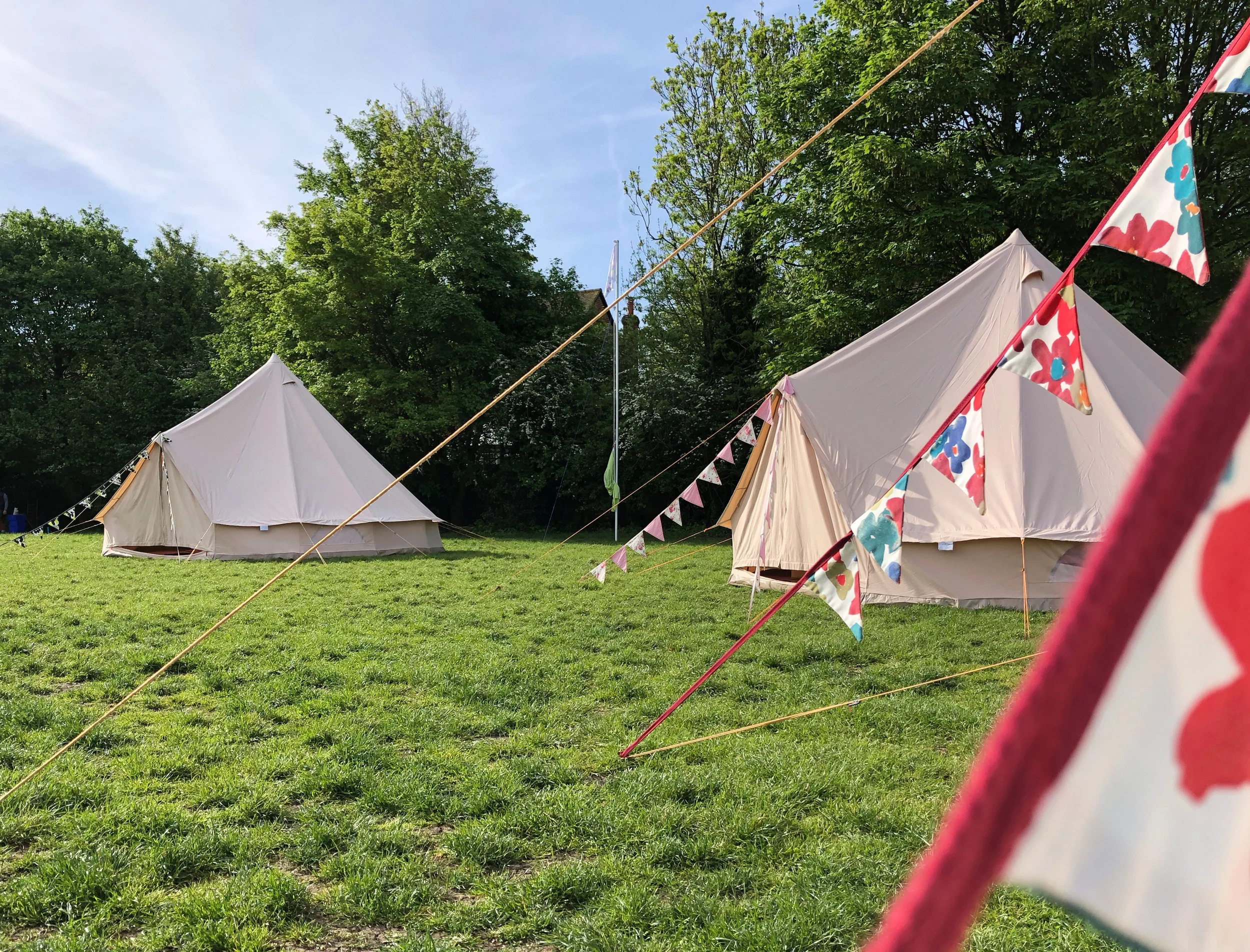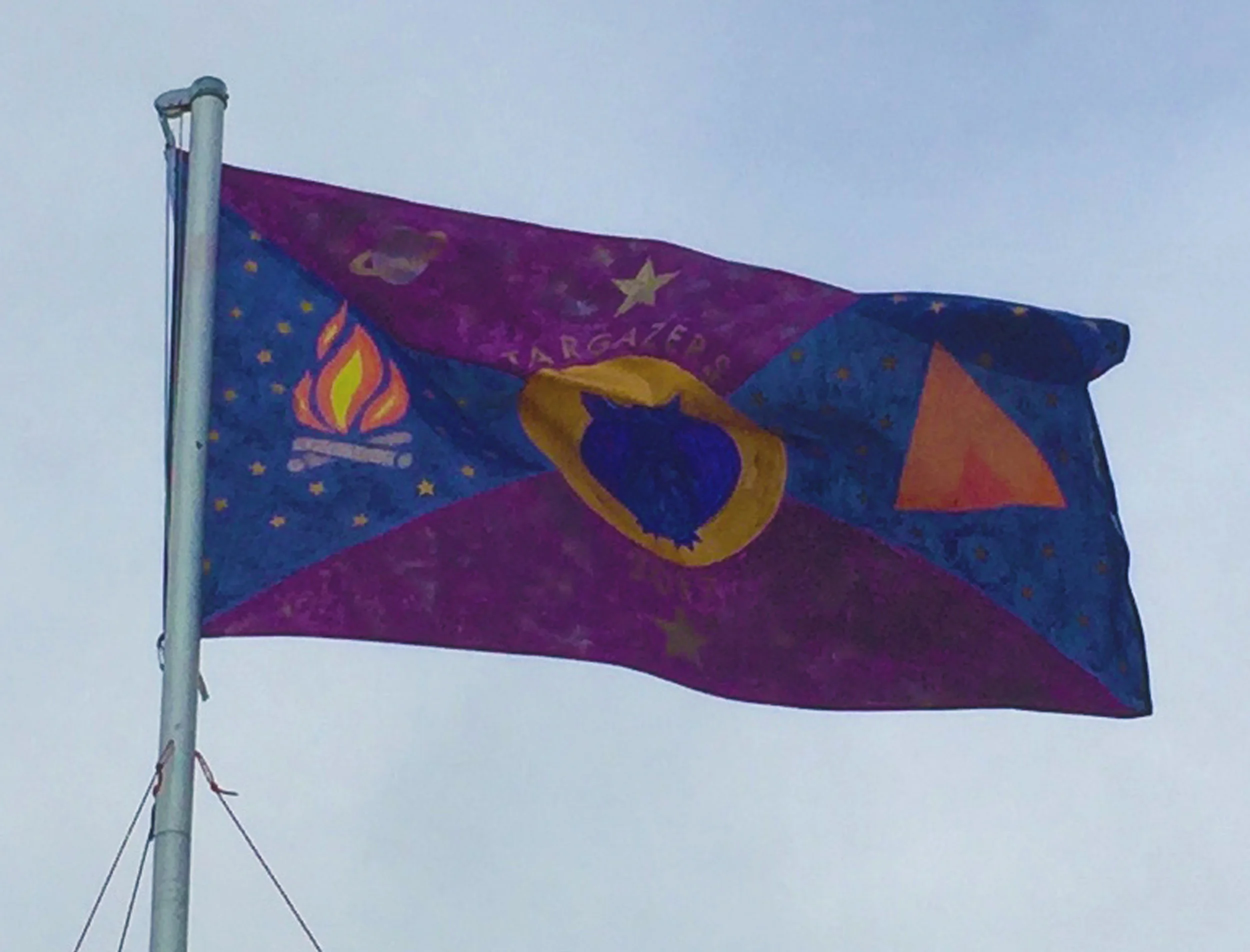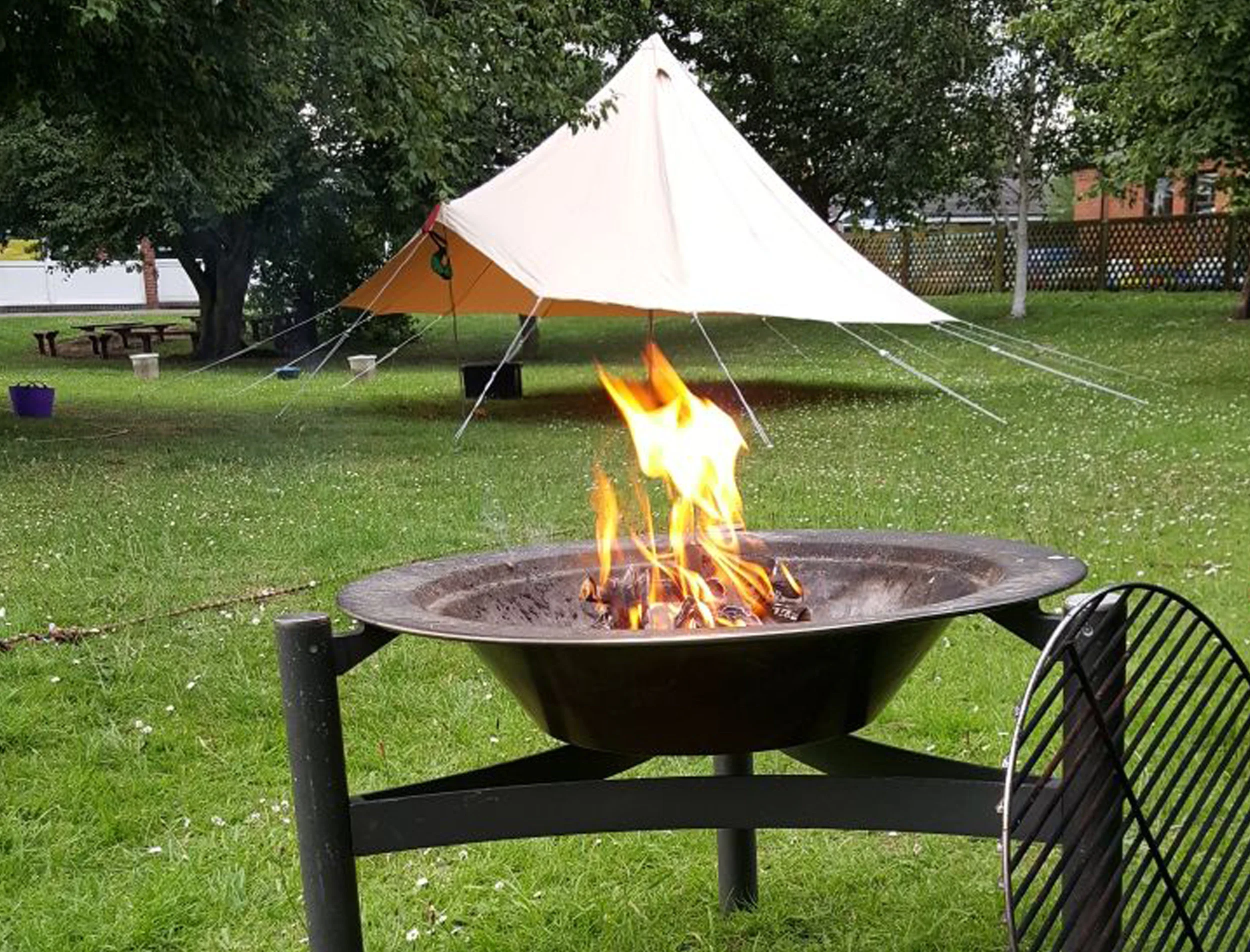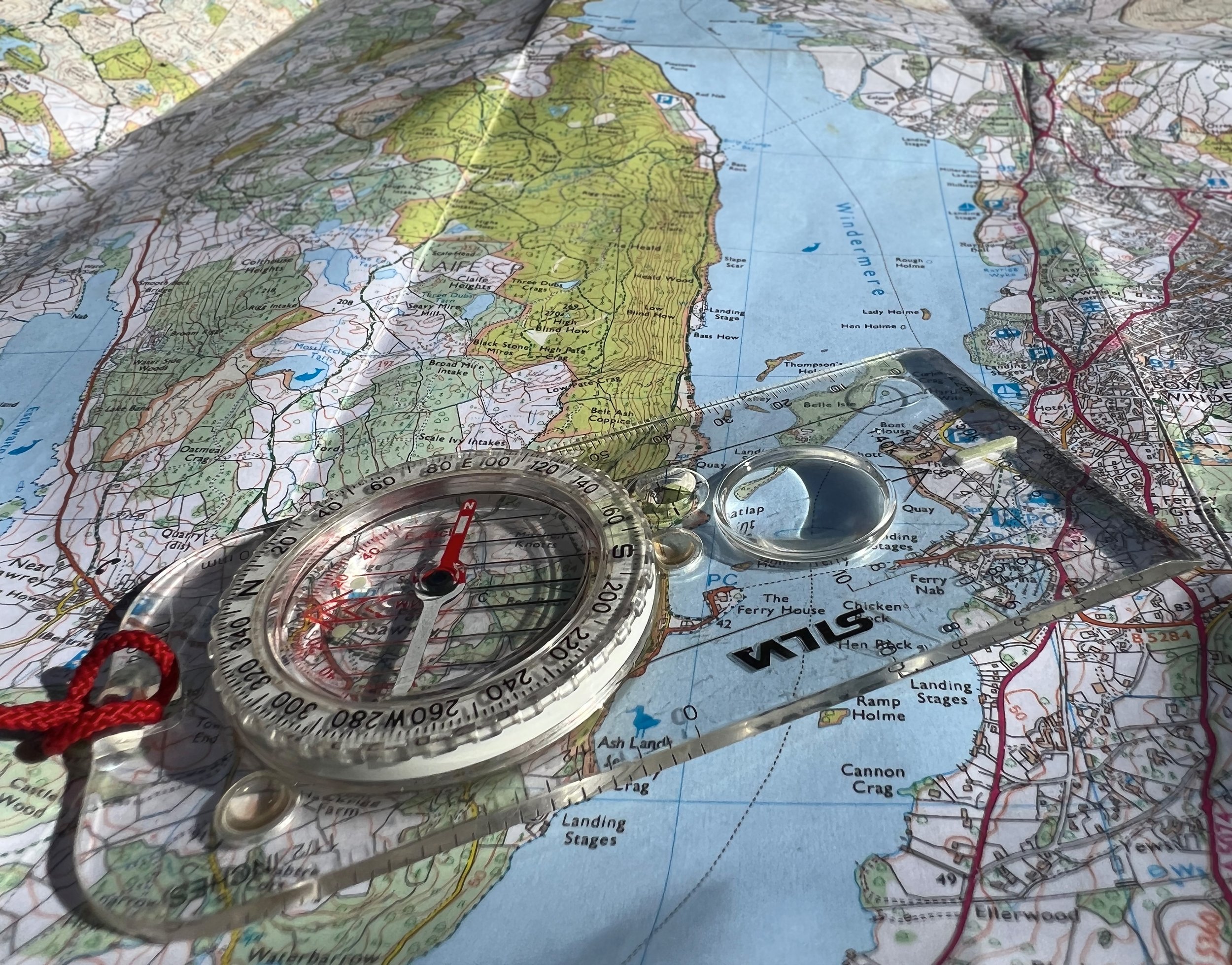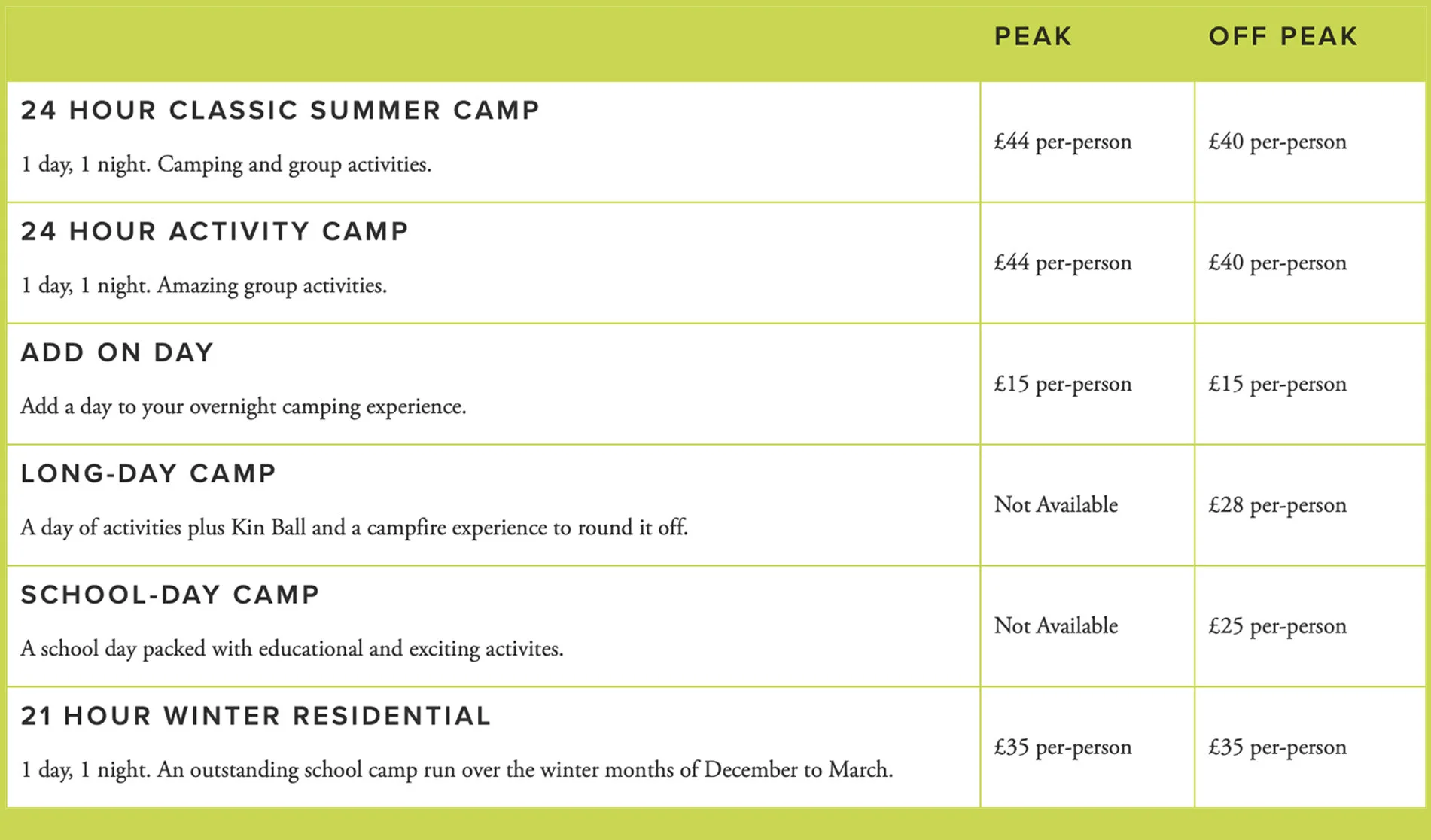What Does A Secondary School Camp Involve?
Teamwork and life skills, woodsmoke, new knowledge and new experiences. Our 24 Hour Secondary School Camps take place in your grounds and are purpose built for older students, with advanced learning outcomes tailored to your requirements.
All our schools create their own bespoke package of Camp and Group Activities so that we can bring you an experience purpose made for your students.
Most schools choose a camp that runs from the end of one school day to the end of the next, but we can also run longer camps or one day workshops and can vary your start and finish times to your needs.
“Thank you so much for another successful camp. Yet again, you have provide an exceptional service. I would highly recommend this experience to any school.”
Accommodation
Everyone will need somewhere to rest after a full day and our secondary schools select from two accommodation options when designing their camp. Some schools choose to mix and match, letting different students pick the sleeping space that seems most exciting to them.
Bell Tents
Our natural canvas bell tents are suitable for any school field and allow the students to build and share a comfortable living space with a large group of their friends.
Bivouacs
If your school has suitable areas of trees, the students can use our high quality tarps to build their own shelters for the night and sleep out under the stars. Of course, cosy tents for the teachers do remain an option!
Camp Activities
Every school receives a blank flag around two months before their camp ready to be raised on the first day. Decorating the flag can be an art project for your students and can be tied into the geography or sociology curriculums.
Competitive Kin Ball games round out a high energy day before some time to wind down and socialise at the campfire.
No camp is complete without a campfire and some toasted marshmallows. The campfire is an amazing opportunity for you to bring your music and drama curriculums into the experience. After a high energy day, some downtime chatting with friends is also a must and is an important social occasion.
At the end of the camp, the students pack away their own sleeping space and then lower the flag to signal the end of their adventure experience.
Bespoke Group Activities
Before your camp, we work with you to design a bespoke programme of four Group Activities themed around team building, life skills, and survival. These four Group Activities pair with our Camp Activities and your accommodation choice to build a 24 hour camp specifically designed for your students.
All of our activities are delivered by our highly trained and experienced staff and we work with you both before and during your camp to develop the learning outcomes you choose.
"This is our fourth year camping with you and the experience continues to be amazing. The whole ethos of your camps fits so well with our school's values.”
Bush tucker cooking
Making and baking unleavened Scottish bannock bread over an open fire is an ancient tradition. And, for that all important protein rich dessert, there’s the bush tucker challenge!
Key Learning outcomes
Cooking over an open fire
Basic baking skills that can easily be replicated in the home
Facing adversity through the bush tucker challenge
Understanding other cultures
life skills and team building
Our unique life skills challenges are designed to help students develop their communication and team skills. Using a structured reviewing approach, we help students focus on the transferable learning they can take from the tasks and how they can apply their new knowledge and skills to other areas of their lives.
Key Learning Outcomes
Team skills and cooperation
Communication skills and simulating breakdowns in communication
Applying Kolb's learning cycle
Applying Action Centred Leadership
Campfire Cook-Out
A relaxed session that we recommend highly for all secondary school groups. This session provides the young people with some unstructured time around the campfire with no goal except keeping the fire burning and baking some fresh banana boats!
Key Learning Outcomes
Unstructured social time
Learning to make a simple campfire snack that the young people can easily replicate elsewhere
First Aid
This session develops basic first aid skills for the outdoors and for life. Focusing on protecting the first aider, methods of getting help, and prioritising what care a casualty needs, this is a practical and hands-on look at saving lives that ties into the PSHE curriculum.
Key learning outcomes
The widely recognised and taught “DR ABC” model of prioritising safety and first aid needs
Protecting yourself and others and seeking emergency assistance
The temporary treatment of airway, breathing, and circulatory problems
Bronze Age tools and cord making
Using primitive tools that predate the Bronze-Age, students will make their own personalised slate keyring and braid a length of versatile tinder cord to go with it.
Key Learning Outcomes
Use of pre-bronze age tools
An understanding of pre-bronze age techniques for drilling and cord making
Plant fibres and their uses
A memento of their camp
Traditional Fire Lighting
The classic and most important survival skill of all. Students will work in small teams to try and make fire using a friction-drill, a traditional flint-and-steel set, the sun, and our 15 person strap-drill. They will also look at and experiment with the pros and cons of modern methods for fire starting.
Key Learning Outcomes
Experiencing and understanding several traditional ways of making fire in the wild
Understanding natural and man-made sources of tinder
Applying the science of fire lighting to practical scenarios
Knife Craft
A vital survival skill is the ability to safely use a full-tang bushcraft knife. Focusing on respect for the blade and the safe use of advanced cutting tools, students learn the three cuts that are essential for using a knife effectively.
Depending on your programme, students will either create their own ornamental “friendship foxes”, or will make sturdy tent pegs for supporting their overnight bivouac.
Key Learning Outcomes
Safe storage and use of knives
The legal implications of bladed tools
Using the “three cuts” to make an ornamental or practical item
Due to the need to maintain low staff ratios, this activity costs an extra £3.50 per person.
Natural Navigation
On this session, students practice the theory of navigation and learn life-saving techniques for navigating without a map or compass.
key Learning Outcomes
The differences between magnetic, map, and “true” norths
How to find north using the sun, the stars, plants, and other methods
The theory and application of magnetic navigation, including making a functional compass
Basic map skills
Camp Food
Using dehydrated ration packs, students choose and prepare their own main evening meal and dessert. The students must successfully light and manage a wood-burning Kelly Kettle to produce the needed hot water.
Key Learning Outcomes
Preparation and consumption of dehydrated rations
Safely lighting and managing a wood burning stove
Dinner!
Please note this session costs an extra £7.50 per person to cover costs
Outdoor art
This session combines marking temporary art using found materials with learning about Stone Age art techniques and the production of a “survival bracelet” for students to make and keep.
key learning outcomes
Creating temporary art with found materials
Land use – what materials can be found on your site and who or what brought them there
Learning and practicing Stone Age art techniques
Basic applied knot work
Improvising with cord in the wild
A souvenir of the camp
Please note that this session costs an extra £2.50 per person to cover material costs
You can check our calendar to view our live availability or you can contact us for more information or a quote.


